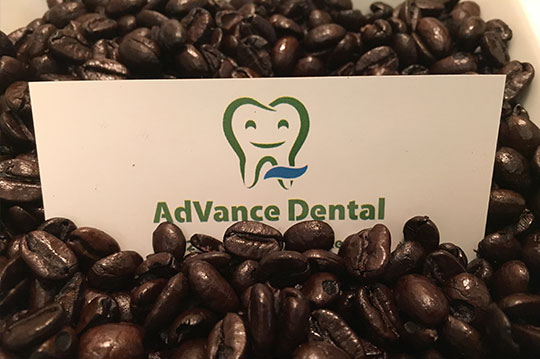
I drink a lot of coffee. I used to hate the taste of it. I never touched it all through college. Only after drinking it to help stay alert during a presentation did I become hooked. It’s now a fixture of my daily routine, and has been for many years. And I’m not alone – coffee consumption is a widespread phenomenon in the United States and the rest of the world. The first record of coffee consumption was in 15th century Yemen, spreading from there throughout the Middle East and Africa. It was introduced to Europe in the late 1500s by a German physician. In the United States, due to the activities of the Boston Tea Party, tea drinking was initially viewed as “un-American,” and coffee rose to popularity in the late 1700s. Today, coffee is fairly ubiquitous and is available basically anywhere food or beverages are sold.
While I now enjoy the taste of coffee, I don’t drink it for the taste – I drink it for its effect of boosting mental alertness. But is it safe? What are the pros and cons of drinking coffee? A recent article published in the Journal of the Academy of General Dentistry1 (JAGD) outlines the risks and benefits of coffee consumption, which I will share with you.
Coffee has been recognized in the dental community for its effect on staining both tooth enamel and the tooth colored filling materials we use to restore teeth with cavities or fractures. I used instant coffee mixed with tea and cranberry juice as a staining solution for a study I performed in dental school to test the color stability of some of the filling materials we use.2 However, studies referenced in the JAGD article have shown that coffee itself is not harmful to the gums, and green coffee has antibacterial properties against the bacteria that cause gum disease.
Several health benefits of coffee in regards to systemic (full body) health have also been found in various studies. The following is a summary of coffee and total body health benefits found from various studies reviewed in the JAGD article:
Liver protection – Coffee consumption has been shown to decrease the incidence of liver cirrhosis/fibrosis (scarring of the liver) including that which is caused by Hepatitis C, excessive alcohol consumption, and obesity. One study found that people who consumed at least 2 cups of coffee a day were 56% less likely to have elevated liver enzyme levels, which are an indicator of liver damage. A strong protective effect against liver cancer was also found in a recent European study, finding that people who drank 3 1/2 cups of coffee per day were 72% less likely to develop liver cancer than those drank less than 1/2 cup per day.
Metabolism boost – A Japanese study found that the more coffee you drink, the less likely you are to develop metabolic syndrome (a condition associated with an increased risk of cardiovascular disease and type 2 diabetes). The researchers found that men who drank 4 cups or more of coffee a day were 39% less likely to develop metabolic syndrome. A separate review of other existing studies found that people who drank 2 cups of coffee per day were at a 15% lower risk for developing type 2 diabetes, while people who drank up to 6 cups were at a 33% lower risk.
Mental acuity – One study found that men who consumed about 4 cups of coffee per day were 25% less likely to develop Parkinson’s disease, and women were 40% less likely to develop the disease. Caffeine consumption has been shown to decrease cognitive decline related to aging and prevent damage caused by one of the main proteins (amyloid-ß) responsible for Alzheimer’s disease.
Cancer risk – A study of European women found that drinking 3 cups of coffee per day lowered the risk of uterine cancer by 19%. There is also evidence of coffee’s protection against oral, throat, colon, prostate, bladder, pancreatic, and breast cancers.
Psychological health – One study evaluating more than 50,000 American women found that women who drank 2-3 cups of coffee per day were at a 15% lower risk for depression, and those who drank at least 4 cups were at a 20% lower risk.
Heart disease and stroke – Short term consumption of coffee can increase both heart rate and blood pressure. However, chronic (long term) coffee consumption may result in decreased risk of heart disease and stroke. Coffee contains polyphenols, which may help prevent formation of blood clots, and chlorogenic acid (an antioxidant) which may decrease blood pressure.
Kidney function – Coffee is a known diuretic, but it can also improve kidney function. A Japanese study compared the effects of green tea and coffee consumption on the kidneys. It was found that 3 cups of coffee per day increased the efficiency of kidney filtration, which can be protective against kidney damage and kidney failure. These protective effects were not found with green tea consumption.
Intestinal health – Coffee seems to increase the intestinal levels of bifidobacteria, “good bacteria” in your gut often used to treat diarrhea and for treating diarrhea in patients taking antibiotics.
Along with these various benefits of coffee consumption, there are also downsides and potential risks which are just as important to know about. These include:
Addiction – Coffee is a known addictive substance, and withdrawal from it can cause fatigue, headache, and irritability.
Sleep disturbances – Caffeine affects circadian rhythm (your internal sleep/wake cycle), which can cause sleep disturbances. Caffeine in the amount of 200 mg, which is about equivalent to an 8 ounce cup of coffee, can delay a person’s sleep cycle of the circadian rhythm by about 40 minutes. This effect varies greatly based largely on weight and caffeine tolerance.
Heart rhythm – Coffee’s stimulant effects can cause arrhythmias (irregular heart beats), which can be dangerous for patients with heart problems.
Miscarriages – Some evidence links coffee to miscarriages in women.
Speaking from personal experience, I have acid reflux, a.k.a. GERD (gastroesophageal reflux disease) or “heartburn.” Caffeine can make this condition worse, so I have to limit my consumption of it – I would say 3-4 cups a day is my average. If I consume it after midday I also find myself a little jittery. So I have switched to decaffeinated coffee if I have a craving for it after 12:00 pm. A recent US government report has stated that 3-5 cups per day is a safe amount of coffee intake and enough to reap all the potential benefits.
In conclusion, coffee (as with many things) can be good in moderation. Pregnant women and individuals with certain medical conditions such as cardiac problems should be cautious and seek advice regarding intake from their medical providers. For most people, the benefits seem to outweigh the risks. I hope this post has shed some light on the correlation between coffee and total body health.
Check out our Youtube Channel for educational videos about dentistry, our practice, and more!
1. Seidman LM, Eckenrode, KN, Bloom IT, Bashirelahi N. What every dentist should know about coffee. Gen Dent. 2016 July-Aug;64(4):20-3. PubMed PMID 27367628.
2. Vance M, Lawson NC, Rupal M, Beck P, Burgess JO. Color and Gloss of Nano-Filled Resin-Modified Glass Ionomers and Resin Composites. J Esthe Restor Dent. 2015 Sep-Oct;27(5):293-9. DOI: 10.1111/jerd.12118. Epub 2014 Dec 1. PubMed PMID 25439032.
Leave a Reply
You must be logged in to post a comment.
